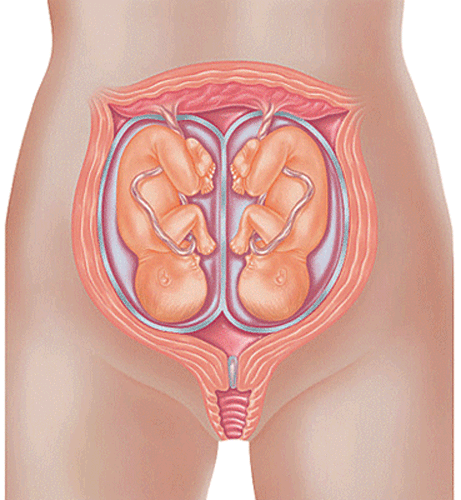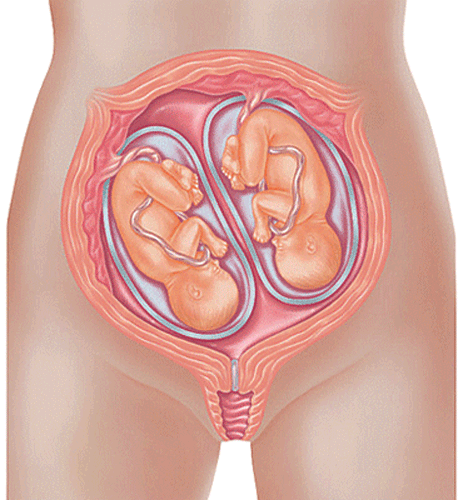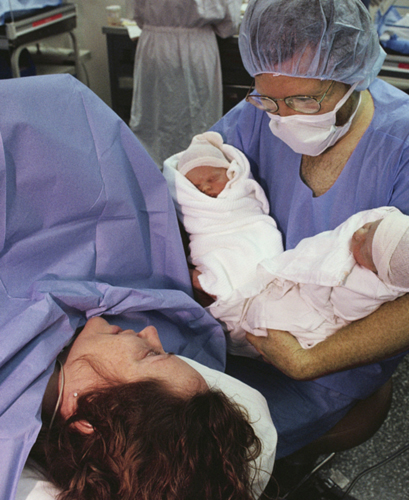How are twins conceived?
Identical “monozygotic”
twins are produced when a single egg is fertilized by a single sperm,
and the egg then splits into two. The babies may share the membrane, or
amniotic, sac that surrounds them in the uterus. Depending on when the
egg splits, they may also share a placenta. Identical twins, therefore,
are the same sex and look almost completely alike since they share the
same genetic makeup. Nonidentical, or “dizygotic,” twins result when two
eggs are fertilized by separate sperm at the same time and each
therefore has its own individual genetic makeup. Each fetus also has its
own amniotic sac and placenta.
Identical twins:
Twins conceived when one fertilized egg divides may share the same placenta in the uterus.

Fraternal twins:
Two eggs fertilized by different sperm results in nonidentical twins that each have their own placenta.

Am I likely to have a normal birth?
Although many women
having twins have normal deliveries, the rate of cesareans is increased
with twin births. With one baby, the cesarean rate is around 30 percent
in the US; with twins, the rate is closer to 50–60 percent, which also
means that 40–50 percent of twins are delivered vaginally. Triplets and
above are generally delivered by cesarean in the US and Europe. Whether
or not twins are born vaginally depends on their position in the uterus:
whether one or both twins is head down (see The position of twins).
There may be an indication as to the type of birth in pregnancy since
women with twins are usually scanned to check the position of the babies
near to term, at around 27–34 weeks.
Your twins' delivery:
Although there
is a higher chance of a cesarean delivery, many doctors are happy to let
women try for a vaginal delivery if they are happy with the twins'
position.

Getting enough rest Taking it easy with twins or more
Your whole body
is under greater stress when carrying more than one baby. It's
important to recognize this and take sensible measures to ensure you get
plenty of rest.
Try to have some
time each day when you put your feet up. If you have other children,
try to arrange for someone else to take them for an hour so you can
relax.
Get to bed earlier in the evening to give your body a break.
When possible, get someone else to help out with household chores, cooking, and shopping.
NOTE
Being pregnant with twins means even more work for your body—so taking care of yourself is more important than ever